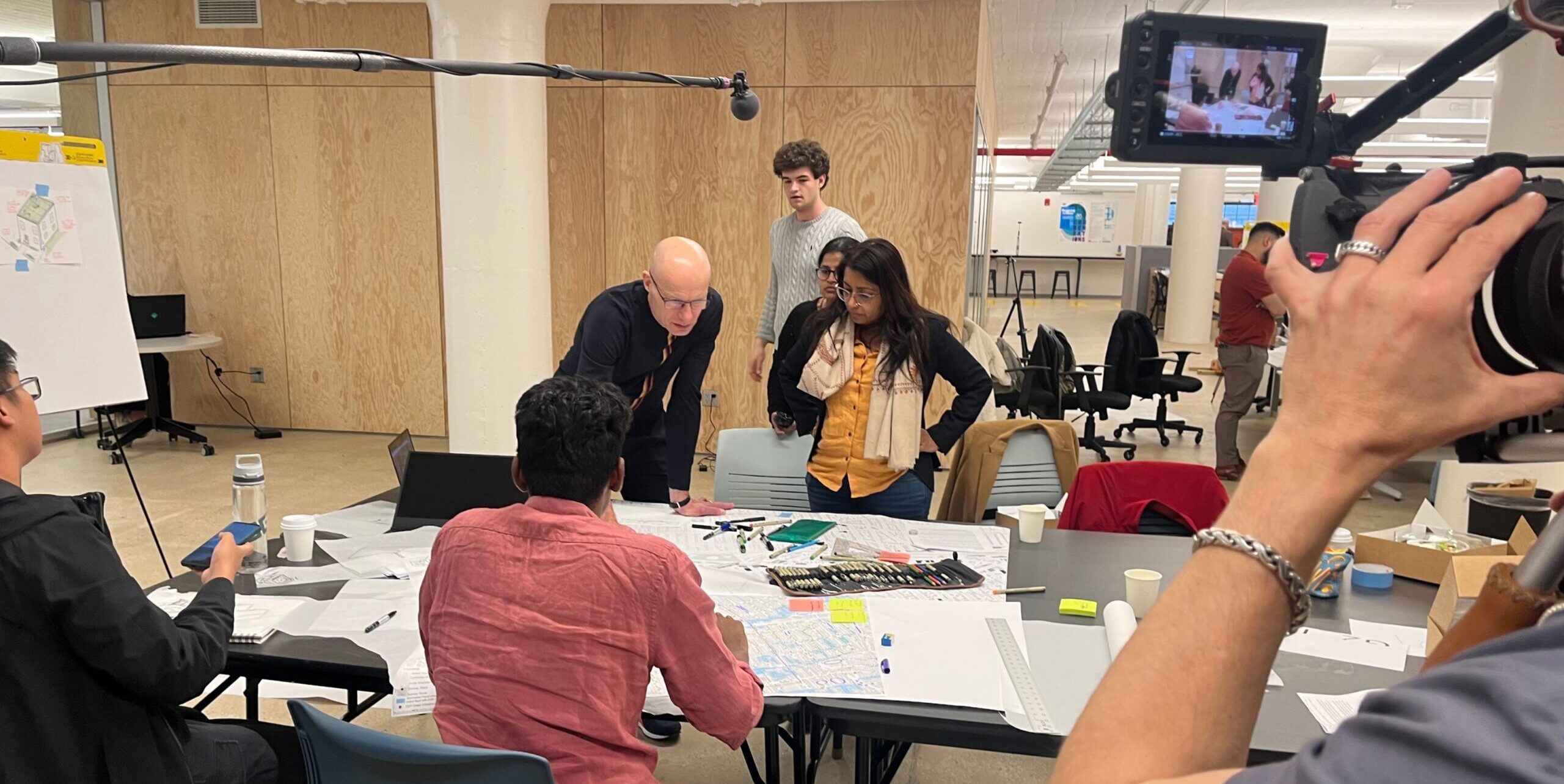
The Condensations Workshops bring together leading policy makers, designers, scientists, engineers and financial partners with local community organizations and students. They reinforce existing partnerships and can be a mode to test partnerships in emerging regions of interest. They are a multiplex of seminars and workshop sessions that include international stakeholders and may be coupled with international events. In each region the format and duration may change to include exhibitions and/or expeditions. If you would like to learn more about joining a Condensations Workshop please reach out to CCA at CCA-NYC@pratt.edu.
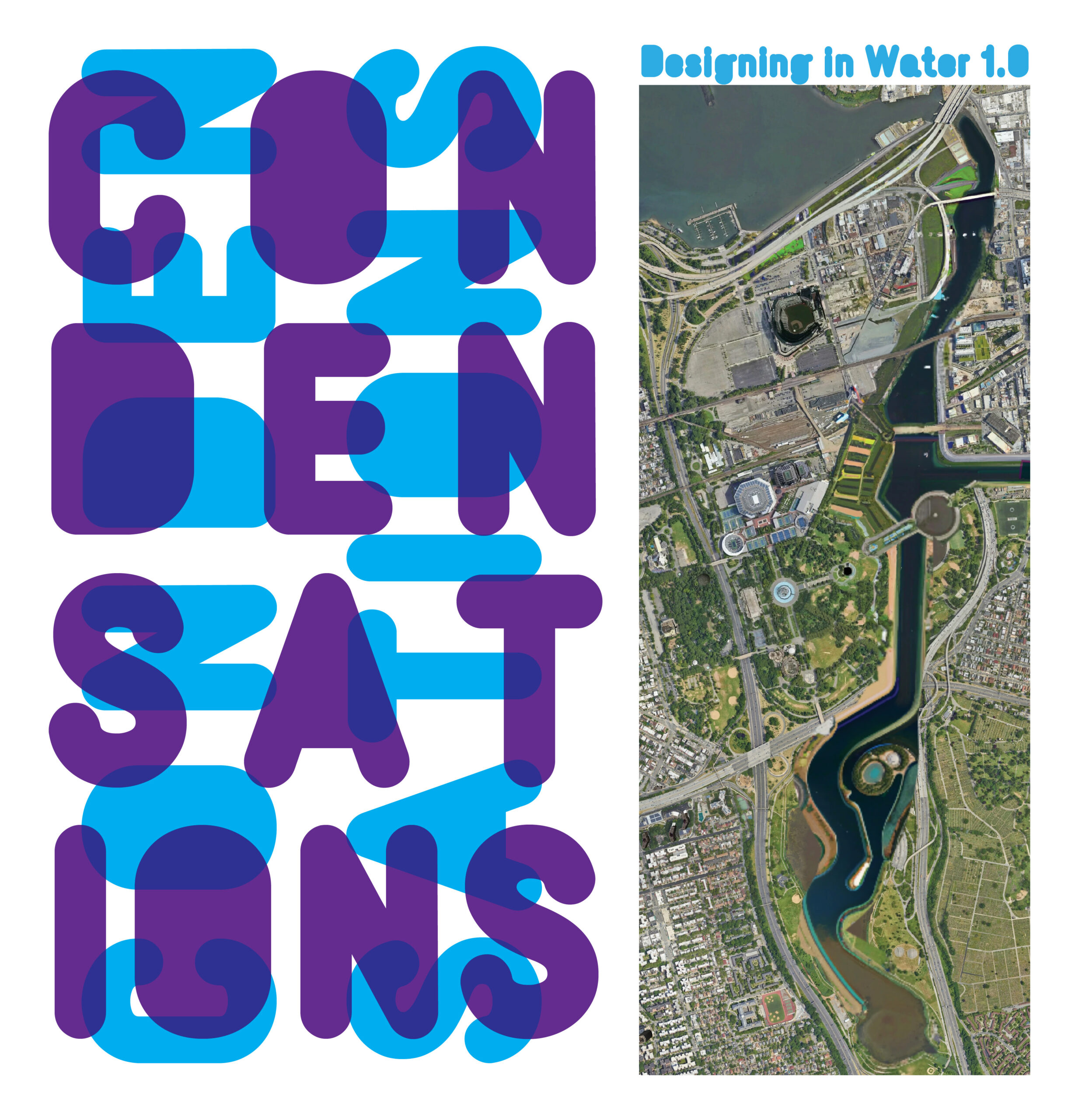
This all-day workshop brought together five international institutions of higher education, their faculty and students to work with various local, national and international stakeholders on one of three particular communities and sites in NYC. One of three parts, this was the last event Pratt hosted for the UN Water Conference.
Representing three water challenged urban typologies (Inland, Island, Tributary), “Condensations, Part 03” sought differing scales and approaches for the development of nature-based green, gray, blue infrastructures and complementary non-structural solutions.
Located in Brooklyn and Queens, the sites represent a sampling of water challenges facing Long Island (the densest island in the US and 17th densest on the planet) and the 32–46 islands comprising the NYC Archipelago.
Teams were formed across sectors including a mix of students, academic leads, industry experts, government officials, community organizations, representatives from the UN and NGOs. Non-human AI counterparts visualizing conversations and input from teams, trained and monitored by Pratt students.
The work shown here foregrounds collaborations with Artificial Intelligence engines; a counterpart to the workshop and each team’s envisioning of their proposals. Trained and monitored by Pratt students alongside each cross cutting team, the AI imagining serves as a complementary set of adaptive possibilities.
Please email CCA-NYC@pratt.edu for full report booklet
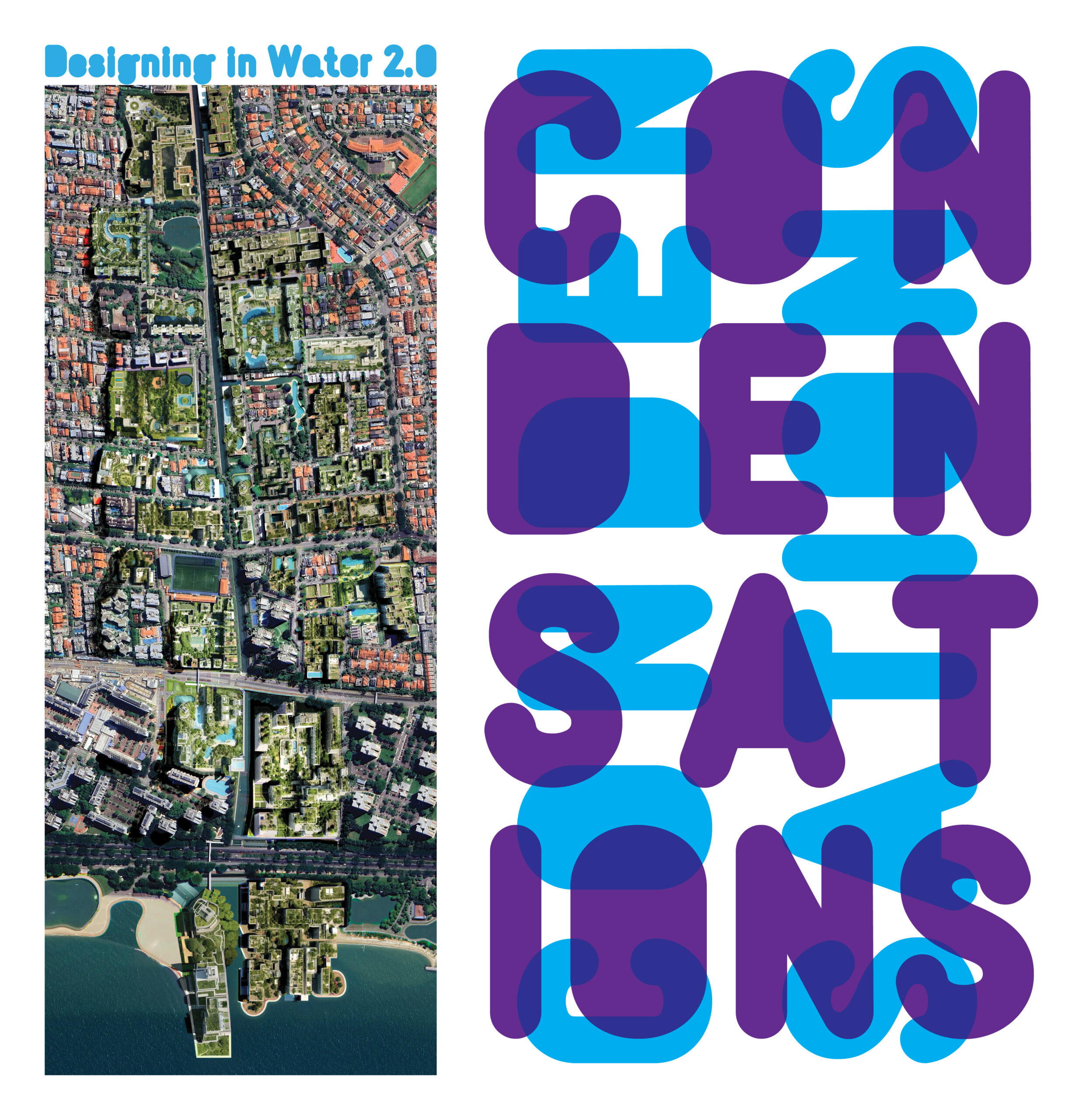
This one-and-a-half day suite of events brought together students/ faculty from Pratt Institute and SUTD alongside the leadership of various Singaporean governmental organizations to discuss and propose methods of climate adaptation along the Eastern coastal region of Singapore; the second densest country on an island.
Looking at defending, wilding and absorbing, three teams studied green/gray/blue adaptive infrastructures using coastal to inland, lowland to upland, localized, neighborhood “transects” perpendicular to the shoreline. Each transect spans across the existing coastline, extending out to the proposed boundary of future reclamation.
A fourth team worked parallel to the coast, through an “islanding” scheme that prospectively ties into the transects. The newly formed ecology amplifies and harvests critical water and food resources through a hybridized green/gray/blue infrastructure of artificial barrier islands.
All four teams worked alongside one another using similar Artificial Intelligence workflows as those used in Condensations 1.0 (see description on the reverse wall), as well as base documentation to develop these initial proposals over the course of the full day workshop.
Condensations 3.0, hosted by University Del Desarrollo (UDD) and took place in Patagonia, Chile December 5-11, 2023. The workshop built upon two prior workshops convened in 2023 with the United Nations and Singapore University of Technology and Design. Erdman convened the workshop, alongside UDD leadership and faculty, on an expedition through the Patagonian Archipelago that included over 40 students. Using a fleet of drones and Artificial Intelligence, the focus was to better understand the archipelago’s latent resources, behaviors, opportunities and challenges in the built and natural environment. As with all Condensations workshops, the week-long ensemble of events included discussions, lectures and engagements with various local officials, scientists and other stakeholders in the region.
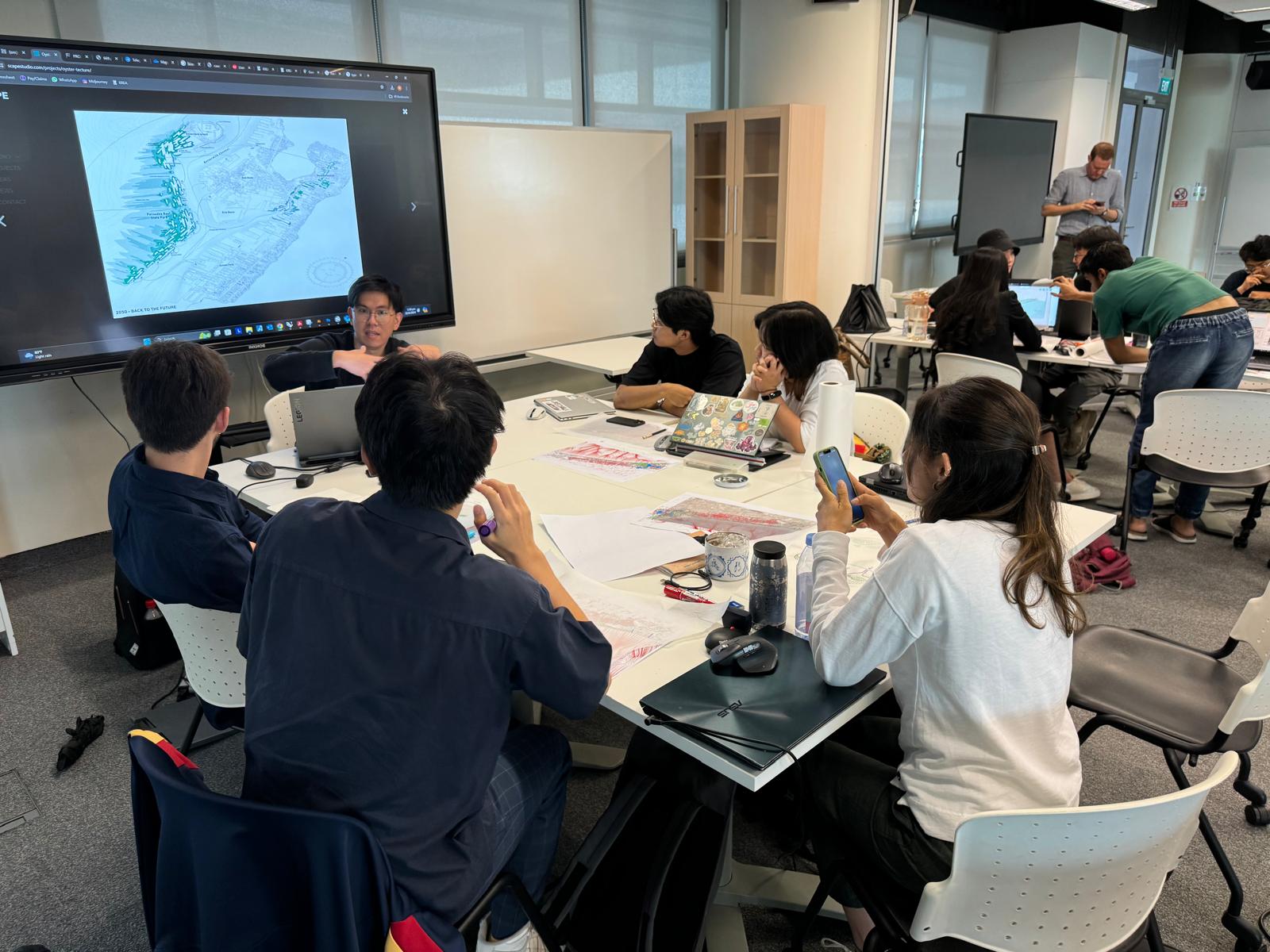
This 2 full day workshop was hosted for students from our academic partner schools network (SUTD Singapore, UDD Chile, Anant India, Pratt Institute USA, Aalto Finland), taking place on the 22nd and 23rd of June at SUTD.
The objective of this workshop is to work with various local, national and international experts and stakeholders on Singapore’s coastline to develop proposals for resilient futures within our shores. During this phase, the specific focus will be on the East Coast area, where alternative strategies will be explored to generate prototypical nature-based green/grey/blue hybrid infrastructures.
CCA has the capacity to host Related Workshops for private corporations, educational institutions and/or non-profit organizations at the Brooklyn Navy Yard often focused on high priority climate adaptation sites throughout the NYC Archipelago. These may include guided tours of various sites and/or the archipelago at large as well as be coupled with exposure to various thought leaders in policy, design and finance in the region.
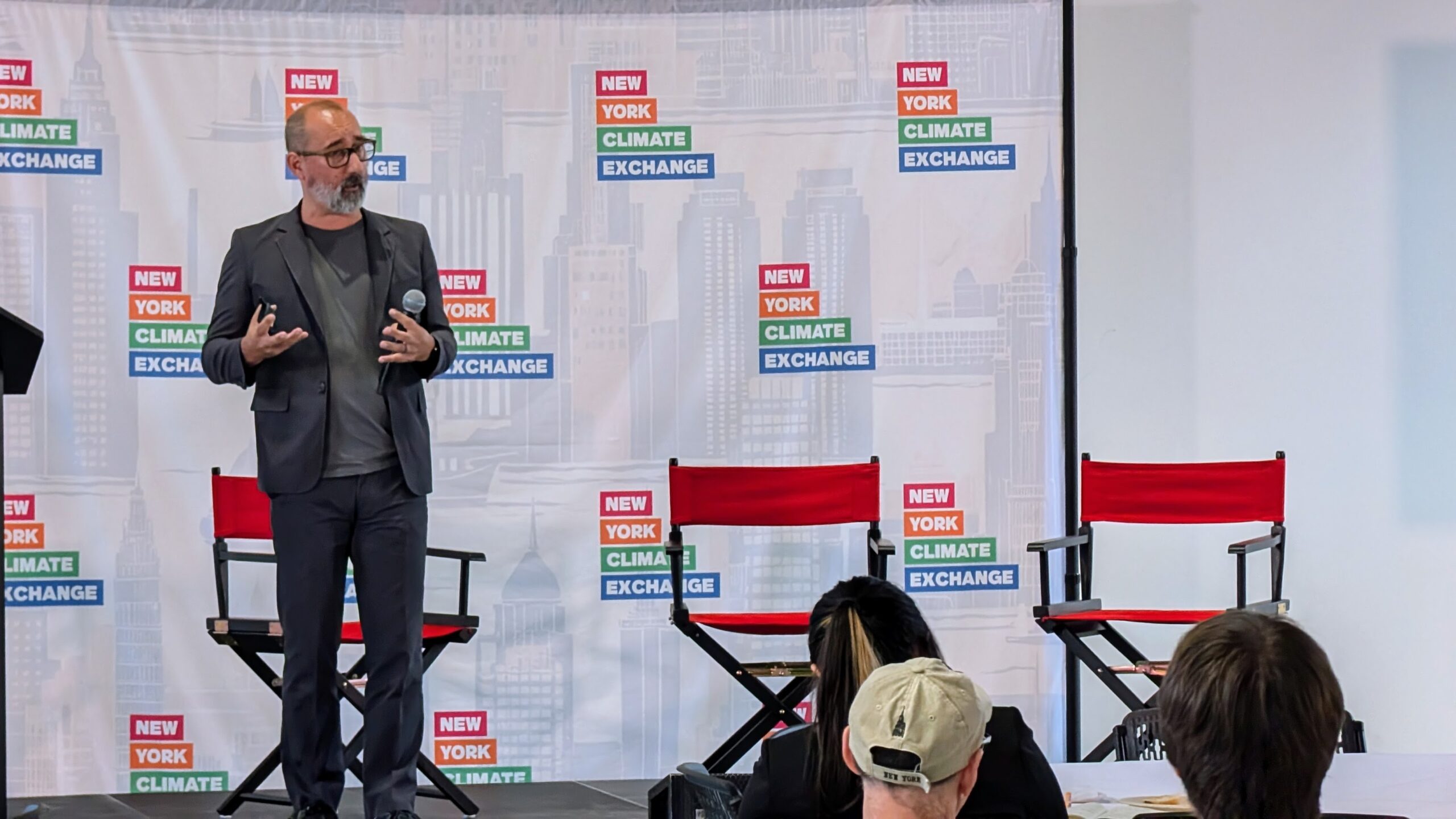
Climate Week 2024 ended with Director Erdman’s participation in a panel at the NY Climate Exchange hosted by Georgia Institute of Technology focused on the Living Building Challenge (LBC). Erdman gave a presentation entitled “Living With Water” where he elucidated various design opportunities in archipleagic communities surrounding Net Zero Water strategies; a subset of the LBC requirements.

CCA, alongside NYC Department of Environmental Protection, conducted a closed door workshop during Climate Week 2024 with various local and regional stakeholders to discuss strategies for amplifying water resource/reuse across the NYC archipelago. The purpose of the workshop was to develop a common understanding and benchmarking of the status of water reuse in NYC and beyond, identify and connect the individuals involved in advancing reuse, and find pathways for acceleration and implementation. The aim was to gather enough material to put together a 12-24 month plan of action to commence January 2025.
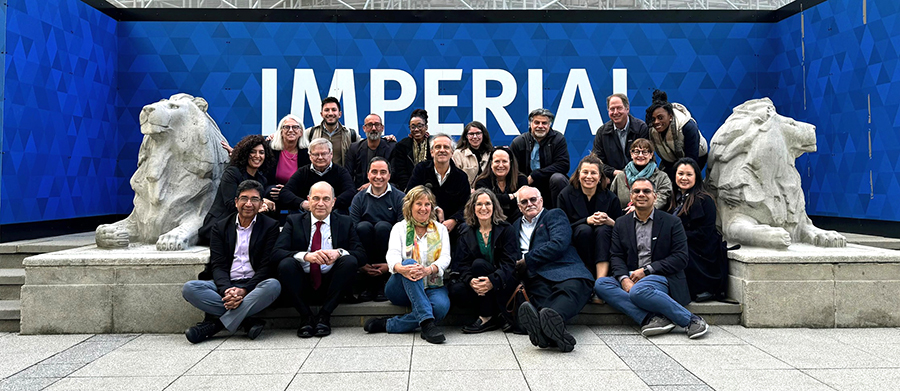
Climate week unofficially began in mid September for CCA with Director David Erdman participating in the three day North American/Europe Megacities for Water and Climate UNESCO workshop held at Imperial College in London. Alongside other NYC delegates selected by the NYC Department of Design and Construction/Town & Gown, Erdman engaged 25 thought leaders, community leaders and utility operators from Los Angeles, San Francisco, Chicago, London, New York and Paris. Discussions and presentations focused on issues ranging from integrated water management to expanded water re-use and how they might impact the design/re-design and reuse of megacities.
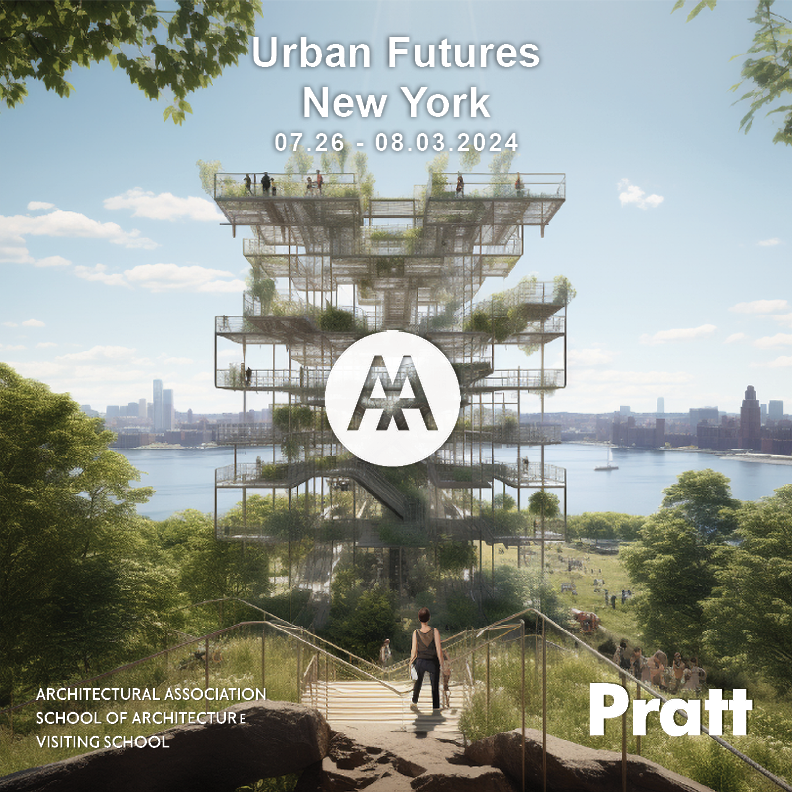
This 9-day workshop aims to investigate new computational approaches and collaborative design methodologies for the development of urban interventions – blurring the lines between physical and digital workflows to create new conceptions of urban habitats. Participants will foster strategies of automation in design and construction, utilizing advanced large scale 3D printing technologies as basis for their interventions.
We will reconsider the role of the designer as that of a system architect – one who produces a framework for construction and building lifecycles that can continuously generate new futures. Experimentation is a key focus of the programme: we will question conventions through unconventional design that initiates discourse, offering novel solutions that can adapt to the changing landscapes of the built environment around the world.
Discounted program fee for current and recent Pratt students.
Further information and registration: newyork.aaschool.ac.uk
National Cheng Kung University Arch New York is a dynamic, in-person five-week program that convenes designers and scholars from leading offices and innovative institutions worldwide. Students from Taiwan will travel to New York to participate in an immersive experience focused on urbanism and climate adaptation. In collaboration with the Pratt Institute’s Center for Climate Adaptation, the program seeks to deepen our students’ understanding of architecture, urbanism, and the practical aspects of the field. The program comprises two courses: a seminar on New York urbanism and a climate adaptation workshop. These courses will be delivered through various formats, enabling students to learn through direct engagement and observation.
By integrating theoretical knowledge with practical experience, the program aims to equip students with a robust understanding of contemporary issues in urbanism and climate adaptation.
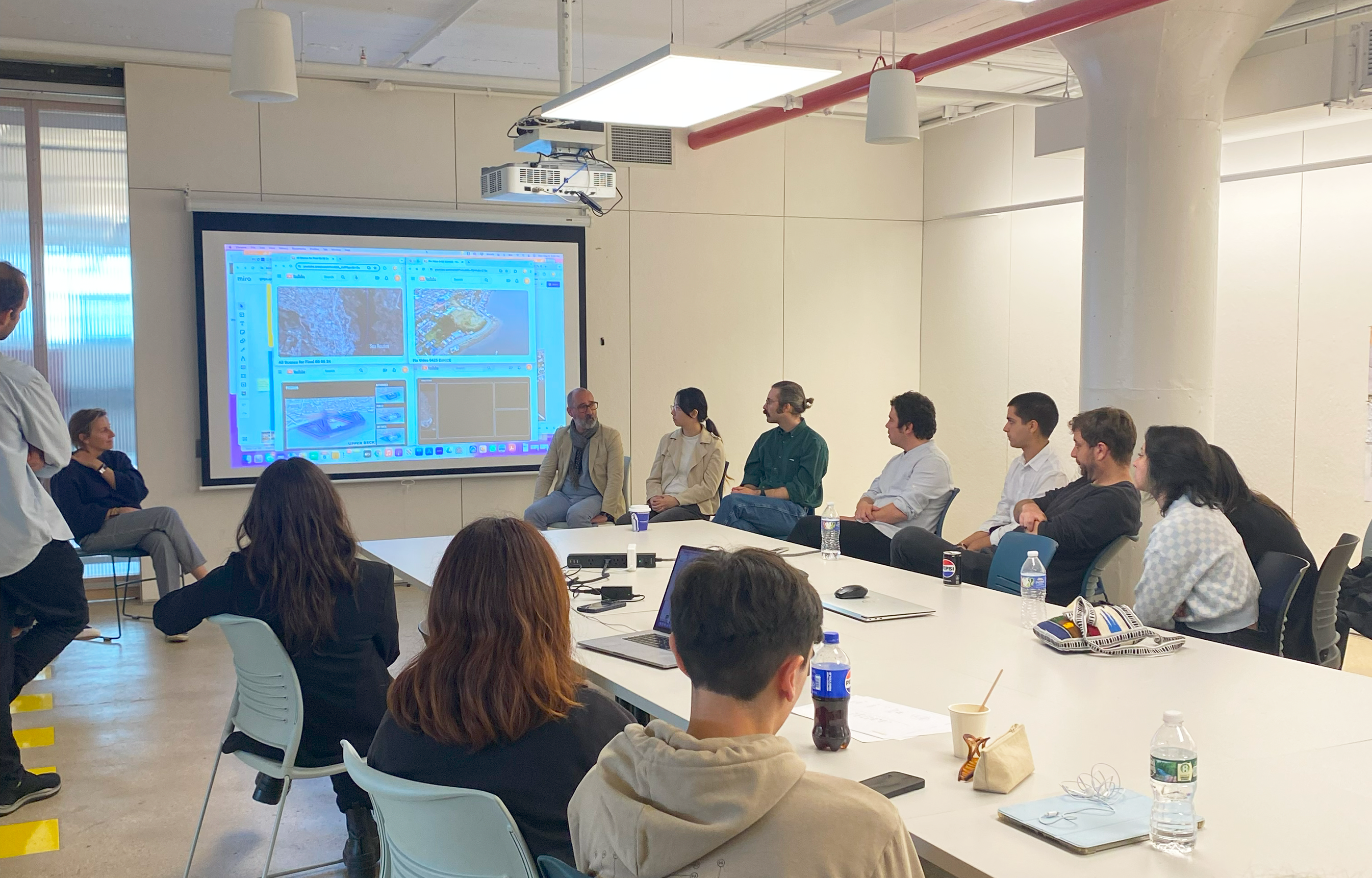
The Universidad del Desarrollo fifth-year studio aimed to develop a large-scale project for New York City, embodying the vision of the mega-project as a city-making infrastructure. Conducted within the framework of a workshop at Pratt Institute’s Center for Climate Adaptation, the focus was on exploring the potential of the “Groundscraper” as an architectural typology to reprogram Brooklyn’s Navy Yard. The workshop sought to inform student proposals with insights gathered on-site at the Navy Yard, integrating both hard data and speculative approaches.